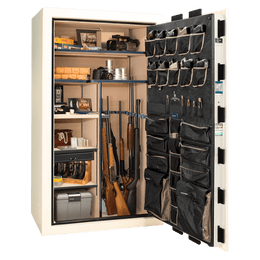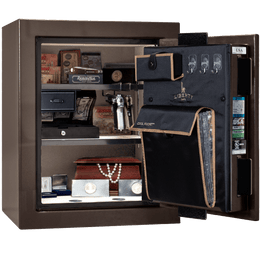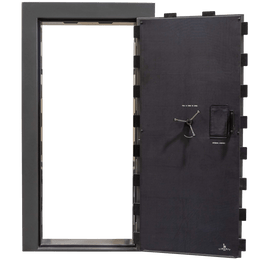What Are Door and Window Sensors?
Do I Need Door and Window Sensors for Home Security?
Door and window sensors are an essential part of any home security system. Ideally, you should have one on every window and each external door. Keep reading to learn the basics about these popular security system components.
They Alert You When an Egress Has Been Breached
Windows and external doors are egresses into your home—they allow people to enter or exit. If an unwanted visitor gains access or, conversely, if someone tries to sneak out of the home, it will be through one of these egresses. The first step to protecting your family, and keeping an eye on your property, is monitoring these egresses, and the best way to do that is with door and window sensors.
With door and window sensors, once your alarm system is armed, your system will alert you (or your security company) if anyone opens a door or one of your windows. With these sensors, you'll know immediately if an egress is opened, and which egress it is, allowing you to respond accordingly.
How Do Door and Window Sensors Work?
Window and door sensors are available in both wired and wireless models. Most sensors use Bell Labs’ tried-and-true technology. These sensors use what is called a “reed switch” and a magnet to detect if the targeted area has “moved.” In fact, if you use a laptop, it is likely that it has a reed switch built into it to tell it to “go to sleep” when you close it and “wake up” when you reopen it.
When the reed switch is closed, it creates a “circuit” as it remains against its magnetic contact. If the magnet is pulled away from the reed switch, the circuit is broken. Because of this simple design, the sensor responds whether the window or door is opened from the inside, or the outside.
When a sensor is tripped, an alert is sent to the user or the central monitoring station. Depending on the system’s setup, an alarm may sound in the house that can scare away a burglar.
What if a Burglar Breaks My Window?
Regular window sensors won't trip if the glass is broken. Because of the magnet-based design, windows and doors have to be opened to separate the magnets and break the circuit. If the glass is broken so that the window or door can then be unlocked and opened, the sensor will trip, but if, say, a burglar just crawls through the broken window, a regular sensor won't be any help.
So how do you protect against this? Simple: with window-break sensors.
Instead of working with a switch and magnet, a window-break sensor works by “hearing” the sound of shattered glass. This sensor is also called an “acoustic glass-break sensor.”
When this sensor hears the unique tone of breaking glass, it sends an alert or triggers an alarm. Because sound travels, you don’t need to have one installed next to every window in your home. One window-break sensor is enough to protect a whole room.
When choosing window and door sensors for your home security system, combining traditional door and window sensors with reed switches and window break sensors is recommended for full coverage and protection.
Learn more about how a comprehensive security system can protect your family and your property.







